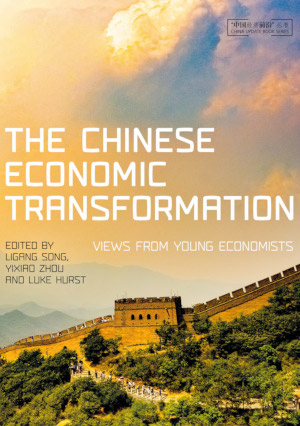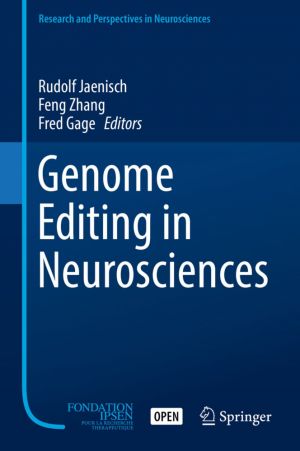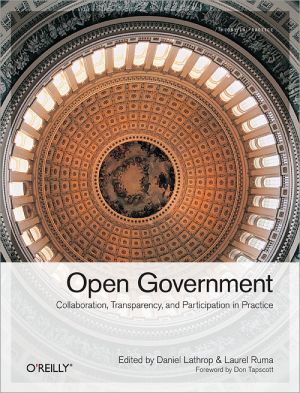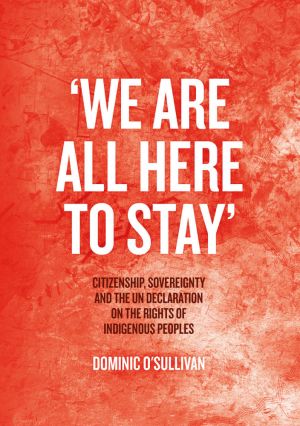We Are All Here to Stay
Citizenship, Sovereignty and the UN Declaration on the Rights of Indigenous Peoples
by Dominic O'Sullivan
DescriptionTable of ContentsDetailsHashtagsReport an issue
The book examines indigenous and state critiques of the Declaration but argues that, ultimately, it is an instrument of significant transformative potential showing how state sovereignty need not be a power that is exercised over and above indigenous peoples. Nor is it reasonably a power that displaces indigenous nations' authority over their own affairs. The Declaration shows how and why, and this book argues that in doing so, it supports more inclusive ways of thinking about how citizenship and democracy may work better. The book draws on the Declaration to imagine what non-colonial political relationships could look like in liberal societies. 






Book Description
In 2007, 144 UN member states voted to adopt a Declaration on the Rights of Indigenous Peoples. Australia, Canada, New Zealand and the US were the only members to vote against it. Each eventually changed its position. This book explains why and examines what the Declaration could mean for sovereignty, citizenship and democracy in liberal societies such as these. It takes Canadian Chief Justice Lamer's remark that 'we are all here to stay' to mean that indigenous peoples are 'here to stay' as indigenous.The book examines indigenous and state critiques of the Declaration but argues that, ultimately, it is an instrument of significant transformative potential showing how state sovereignty need not be a power that is exercised over and above indigenous peoples. Nor is it reasonably a power that displaces indigenous nations' authority over their own affairs. The Declaration shows how and why, and this book argues that in doing so, it supports more inclusive ways of thinking about how citizenship and democracy may work better. The book draws on the Declaration to imagine what non-colonial political relationships could look like in liberal societies.
This open book is licensed under a Creative Commons License (CC BY-NC-ND). You can download We Are All Here to Stay ebook for free in PDF format (8.1 MB).
Table of Contents
Chapter 1
The Declaration on the Rights of Indigenous Peoples
Chapter 2
Reconciliation, Trust and Liberal Inclusion
Chapter 3
The Declaration and the Postsettler Liberal State: Perspectives from Australia, New Zealand, Canada and the United States
Chapter 4
Plurality, Human Rights and What's Wrong with Liberal Inclusion?
Chapter 5
Self-Determination - the Power and the Practice
Chapter 6
The Declaration in Comparative Context
Chapter 7
Sovereignty
Chapter 8
Difference, Deliberation and Reason
Chapter 9
Differentiated Citizenship: A Liberal Politics of Potential
Book Details
Title
We Are All Here to Stay
Publisher
ANU Press
Published
2020
Pages
270
Edition
1
Language
English
ISBN13
9781760463946
ISBN10
1760463949
ISBN13 Digital
9781760463953
ISBN10 Digital
1760463957
PDF Size
8.1 MB
License

Related Books

This book asks just how climate-smart our food really is. It follows an average day's worth of food and drink to see where it comes from, how far it travels, and the carbon price we all pay for it. From our breakfast tea and toast, through breaktime chocolate bar, to take-away supper, Dave Reay explores the weather extremes the world's fa...

I've already accepted the fact that Bring-Your-Own-Device (BYOD) is a business trend that's here to stay. According to one report I recently read, just 23 percent of enterprise employees use company-sanctioned mobile devices only - meaning 77 percent of employees are using their own devices in some capacity to do their job. 1 As the Chief...

The Chinese Economic Transformation, the 19th volume in the China Update book series, provides an opportunity for young economists to share their views on various issues relating to the Chinese economic transformation. More than half of the contributors to this book are female scholars. Some of the contributors are rising stars in the studies of th...

Innovations in molecular biology are allowing neuroscientists to study the brain with unprecedented resolution, from the level of single molecules to integrated gene circuits. Chief among these innovations is the CRISPR-Cas genome editing technology, which has the precision and scalability to tackle the complexity of the brain. This Colloque Médec...

This book is aimed at managers, business owners, marketing managers, and aspiring social media marketing interns and managers. I will assume that however accomplished in your own field - baker, developer, teacher and that even as successful business owners, you approach the topic of social media marketing as a beginner. Even if you are an avid pers...

In a world where web services can make real-time data accessible to anyone, how can the government leverage this openness to improve its operations and increase citizen participation and awareness? Through a collection of essays and case studies, leading visionaries and practitioners both inside and outside of government share their ideas on how to...

